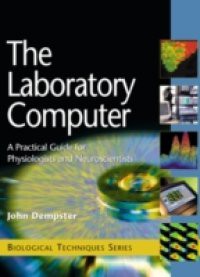The Laboratory Computer: A Practical Guide for Physiologists and Neuroscientists introduces the reader to both the basic principles and the actual practice of recording physiological signals using the computer. It describes the basic operation of the computer, the types of transducers used to measure physical quantities such as temperature and pressure, how these signals are amplified and converted into digital form, and the mathematical analysis techniques that can then be applied. It is aimed at the physiologist or neuroscientist using modern computer data acquisition systems in the laboratory, providing both an understanding of how such systems work and a guide to their purchase and implementation.Written by an expert in the field, the book presents:* The key facts and concepts that are vital for the effective use of computer data acquisition systems;* A unique overview of the commonly available laboratory hardware and software, including both commercial and free software;* A practical guide to designing one's own or choosing commercial data acquisition hardware and software.

